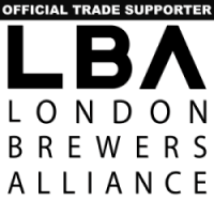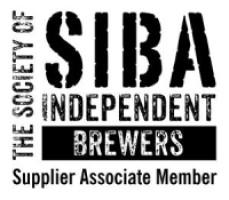Our services
-
Corporate
- Fundraising
- Governance arrangements (including shareholders agreements and articles)
- Company sale and acquisitions
- Business and assets disposals or acquisitions
- Reorganisations and restructuring
- Early-stage advice including company formation
- Employee share schemes
- Advising on director duties
-
Banking (and third-party borrowing)
- Asset finance
- Loan facilities
- Invoice discounting
- Personal guarantees
- Security arrangements
- Refinancing
-
Insolvency and business rescue
- Insolvency arrangements
- Restructuring advice
- Administration and pre-pack sales
- Solvent winding-up
- Advising on director duties
-
Brand protection and intellectual property
- Trade mark and logo registration and protection
- Infringement actions (defending and bringing claims)
- Packaging rights
- Registered design rights
-
Regulatory compliance
- Health and safety
- Premise licensing
- Labelling
- Policy review, drafting and amendments
-
Commercial contracts
- Distributor contracts
- Retailer contracts
- Supplier contracts
- Terms and conditions
- Website policies including cookies, privacy policies
- Data protection compliance
-
Employment law
- Employment contracts
- Employment disputes
- Employee incentive schemes
- Policies
- Workplace safety
-
Real estate
Negotiating and advising on the purchase of leasehold or freehold of:
- brewing premises
- taprooms
- bars
- bottle shops
- pubs.
As well as any ancillary matters in respect of properties.
-
Litigation and dispute resolution
Representing breweries in disputes with:
- suppliers
- distributors
- regulatory agencies
- employees (including routine debt collection).
FAQs
-
Is there any difference between operating as a sole trader or a limited company?
As a separate legal entity from its owner(s), a company can incur borrowing, litigate against third parties, own property and enter into contracts in its own name. Crucially, its owner(s) will not be personally liable for any debts of the company. Conversely, the owner(s) of a sole trader will be liable for the debts of the business and can be sued personally for any breach of contract.
There is also a difference in the way that both types of business are taxed. A sole trader will pay income tax on any profits made by the business, whereas a limited company will pay corporation tax on any profits while its employees pay income tax on their salaries. Company shareholders might also look to extract some of the profits of the business by way of dividend at a lower rate than income tax.
-
Do I need to provide employment contracts to staff?
It’s a legal requirement for employees to be provided with a written statement of their employment terms. If no such statement is provided, an employment tribunal can award additional compensation if a claim is made. The statement should be provided before employment commences and must be kept up to date, for instance if any of the key terms change.
Even more importantly, written terms provide necessary clarity to the employment relationship — covering key information about working hours, pay, expected standards and what is necessary in the event that either party wishes to serve notice to terminate.
Without a written employment contract, employers risk being unable to protect their position in the event that a dispute or misunderstanding arises.
-
Why should I register my logo?
Registering your logo as a trade mark with the UK Intellectual Property Office provides you with a monopoly right that allows you to prevent any competitor from using an identical or similar mark.
Protection lasts for as long as you pay the renewal fees — which are due every ten years. Bass Brewery’s famous red triangle has been registered since 1876.
Registered intellectual property rights increase the value of your business and make it easier to obtain investment — while making it easier and cheaper to protect your brand(s) when needed.
-
If someone leaves my business, do we get their shares back?
Unless there is a shareholders’ agreement (a private agreement between the company’s shareholders) or specific provision in the company’s articles of association that facilitates the recovery of a departing employee/founder’s shares (which isn’t a feature of the model articles that companies will often be set-up with) then there is no automatic right to recover the shares of a departing employee or co-founder. They would therefore be entitled to keep their shares and participate in the future growth of the business.
This is one of many reasons why it’s important to consider governance arrangements at the outset and take legal advice on the documents needed to adequately protect your position.
-
What are enterprise management incentive share options?
Paying a competitive salary is one of many ways to financially incentivise staff. Enterprise management incentive (EMI) share options can also be used as a tax-efficient way to reward and retain your people.
EMI options grant employees the right to buy shares in the company in the future at a price that is fixed today, often being a nominal amount. If the company increases in value over time, the employee can then purchase their shares at a low cost with a view to selling their shares for a profit or potentially retaining the shares and participating in dividends of profit going forward.
-
What options are available to raise finance?
There are two traditional types of finance — debt and equity.
Debt finance in its simplest form is a loan from a bank but could also come from friends, family or alternative lenders. Interest will usually be payable on the loan at an annual rate.
Equity finance is when shares in the business are issued for investment monies. While the investment doesn’t need to be repaid, the investor will own a share of the business and expect to receive a slice of the company’s profits and participate in its future success.
Whether you’re looking to raise debt or equity, you’ll usually need to instruct a solicitor to draft and advise on the documentation to ensure that the terms are fair and your position is protected.
-
What does a prospective investor look for?
An investor will inevitably look at a company’s financials to gauge how risky the investment might be and the appropriate value for the percentage they’re acquiring. They’ll be looking for a solid business plan and competent leadership team that they believe will deliver growth.
Additionally, checks will be made to ensure that the business is legally compliant, has appropriate contracts in place (for example with employees, landlords, suppliers and customers) and isn’t involved in any litigation.
-
What are EIS/SEIS reliefs? Are we eligible?
EIS and SEIS reliefs are Government schemes designed to encourage investment and innovation. Under these initiatives, private investors receive a tax break as an incentive for early stage, high risk investments. To receive the incentive, investors must invest in small, unlisted companies — those with less than 250 employees and assets worth up to £15m.
SEIS relief is granted on investments in small early-stage start-ups. Investors can invest up to £250k each tax year in SEIS-eligible companies and receive 50% of this back via income tax relief. EIS relief focuses on medium-sized start-ups. Investments of up to £1m each tax year in EIS-eligible companies attract a 30% income tax relief for the investor. Both EIS and SEIS investors benefit from a CGT exemption on any profit arising from sale of shares held after three years. In addition to this, any losses made on the sale of SEIS or EIS shares can be offset against the investor’s income tax bill.
These reliefs are intended to make it easier for start-ups and smaller companies to attract the investment needed to scale their operations. They can be extremely useful to bridge any valuation gap that might exist between founders and investors.





















